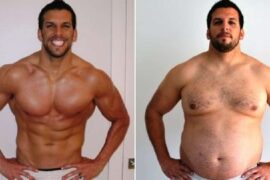Introduction: The Quest for Muscle Gains
Building muscle is a multifaceted journey that extends far beyond the gym. While consistent training is essential, the role of nutrition cannot be overstated. For many fitness enthusiasts and aspiring bodybuilders, understanding the nuances of muscle food can mean the difference between progress and stagnation. However, the vast amount of information available can lead to confusion and, at times, missteps in dietary choices.
This article will delve into five common muscle food mistakes that can derail your efforts and how to avoid them. By arming yourself with knowledge, you can enhance your training outcomes and achieve your desired physique more effectively. Let’s unpack these pitfalls and discover how to navigate them.
Mistake 1: Neglecting Protein Timing
The Importance of Timing
Protein is the cornerstone of muscle recovery and growth. It’s a well-established fact that consuming adequate protein is essential for anyone serious about building muscle. Yet, many lifters operate under the misconception that simply hitting their daily protein target is sufficient. They often overlook the importance of timing their intake to maximize muscle protein synthesis.
Recent research indicates that the distribution of protein throughout the day is crucial. Dr. Alan Aragon, a nutrition expert with a focus on sports nutrition, asserts, “The total daily protein intake is more critical than any single meal. However, distributing protein evenly across meals can optimize muscle protein synthesis.” This perspective shifts the focus from merely how much protein you consume to when you consume it.
Understanding the Anabolic Window
The concept of the anabolic window—often defined as the 30-minute to two-hour period post-workout when the body is primed for nutrient absorption—has been a topic of debate. While it’s still vital to consume protein after workouts, it’s equally important to consider your intake before and during your training. Research has shown that muscle protein synthesis can be stimulated by protein intake even before exercise.
The Solution
To optimize your protein intake, aim for 20-30 grams of high-quality protein at each meal, spaced out every three to four hours. Incorporating sources like lean meats, fish, dairy, eggs, and plant-based proteins can ensure you meet these goals. Additionally, consider having a protein-rich snack or meal two to three hours before your workouts to maximize your performance and recovery.
Moreover, post-workout nutrition is still critical. A balanced meal containing protein and carbohydrates within two hours of finishing your workout can further enhance recovery. Try pairing a protein shake with a banana or a meal that includes chicken and brown rice to effectively replenish your energy stores and kickstart muscle repair.
Mistake 2: Overlooking Micronutrients
Beyond Macros: The Role of Micronutrients
When focusing on macronutrients—proteins, fats, and carbohydrates—it’s easy to overlook the equally important micronutrients, which include vitamins and minerals. These micronutrients play essential roles in numerous bodily functions, including energy production, muscle contraction, and recovery processes.
Dr. Michael Gleeson, a renowned exercise physiologist, emphasizes, “Micronutrients are crucial for muscle function and recovery. Deficiencies can lead to fatigue and hinder performance.” Vitamins such as B6 and B12, along with minerals like magnesium, zinc, and iron, are vital for energy metabolism, immune function, and muscle repair. A lack of these essential nutrients can lead to diminished performance, increased recovery time, and even greater susceptibility to injury.
The Risks of Micronutrient Deficiencies
Athletes and bodybuilders often follow strict dietary regimens, sometimes at the expense of balanced nutrition. This can lead to deficiencies that impact overall health and performance. For instance, inadequate vitamin D levels can impair muscle function and recovery, while low magnesium can contribute to muscle cramps and fatigue.
The Solution
To avoid micronutrient deficiencies, strive for a diet rich in variety. Incorporate a colorful array of fruits and vegetables to ensure you’re getting a broad spectrum of vitamins and minerals. Leafy greens, berries, citrus fruits, nuts, seeds, and whole grains should all find a place on your plate.
Consider including fermented foods like yogurt or kimchi to support gut health, which is closely tied to overall nutrient absorption. Additionally, if you suspect that you may not be meeting your micronutrient needs through diet alone, consult with a healthcare professional about the potential for supplementation.
A Closer Look at Key Micronutrients
– Vitamin D: Essential for calcium absorption and muscle function, you can obtain vitamin D through sun exposure, fatty fish, and fortified foods.
– Magnesium: Important for energy production and muscle contraction, sources include nuts, seeds, whole grains, and leafy greens.
– Zinc: Crucial for immune function and protein synthesis, zinc is found in meat, shellfish, legumes, and seeds.
By paying attention to your micronutrient intake, you can bolster your training efforts, enhance recovery, and maintain overall health.
Mistake 3: Ignoring Hydration
The Crucial Role of Water
Hydration is a fundamental yet often neglected aspect of muscle nutrition. Water plays a critical role in nearly every bodily function, including temperature regulation, nutrient transport, and muscle contraction. Even mild dehydration can lead to reduced strength, impaired recovery, and decreased performance.
The American Council on Exercise notes that “water plays a critical role in muscle function, joint lubrication, and nutrient transport.” It’s vital to recognize that thirst is not always a reliable indicator of hydration needs. By the time you feel thirsty, you may already be dehydrated.
The Impact of Dehydration on Performance
Research has shown that even a 2% decrease in body weight due to fluid loss can impair athletic performance. This can manifest as fatigue, decreased endurance, and a slower recovery process. For athletes and those engaging in intense training, staying adequately hydrated is not just beneficial; it’s essential.
The Solution
Establish a consistent hydration strategy that goes beyond just drinking water during workouts. Aim for at least half your body weight in ounces of water daily. For example, if you weigh 180 pounds, strive to consume at least 90 ounces of water each day.
To optimize hydration, consider the following tips:
– Pre-Hydrate: Start your day with a glass of water and continue to sip throughout the morning.
– Hydration During Workouts: For workouts lasting longer than an hour or in high temperatures, consider an electrolyte-rich drink to replenish lost minerals.
– Post-Workout Recovery: Rehydrate after your workout, as this is when your body is most depleted. A good rule of thumb is to drink 16-24 ounces of water for every pound lost during exercise.
Mistake 4: Ignoring Nutrient Timing
Timing Matters
The timing of your nutrient intake plays a crucial role in muscle recovery and growth. Many believe that simply meeting their daily caloric and macronutrient goals is enough, but research indicates that nutrient timing can significantly enhance muscle protein synthesis, particularly around workouts.
According to Dr. Alan Aragon, a well-known nutrition researcher, “The post-workout anabolic window is real. Consuming protein and carbohydrates soon after training can maximize recovery and muscle growth.”
The Solution
Aim to consume a balanced meal or snack containing protein and carbohydrates within two hours after your workout. This can include options like a protein shake with a banana or a meal with chicken and quinoa. Additionally, spreading protein intake throughout the day helps maintain a positive nitrogen balance, which is essential for muscle growth.
Mistake 5: Skipping Carbs
The Carbohydrate Conundrum
Carbohydrates often get a bad reputation in fitness circles, with many associating them with weight gain. However, carbohydrates are essential for fueling workouts and supporting recovery. Glycogen, the stored form of glucose in muscles, is the primary energy source during high-intensity exercise.
According to exercise physiologist Dr. Tim Noakes, “Carbohydrates are not the enemy; they are vital for energy production, especially in endurance and strength training.”
The Solution
Don’t shy away from healthy carbohydrates. Include whole grains, fruits, vegetables, and legumes in your diet. The timing of carbohydrate intake is also important—consume complex carbs before and after workouts to replenish glycogen stores and support recovery.
Additional Considerations
Certain factors can increase your hydration needs, such as temperature, humidity, and exercise intensity. Pay attention to your body and adjust your fluid intake accordingly. Using apps to track water intake can also help ensure you meet your daily hydration goals.
Conclusion: Empower Your Muscle-Building Journey
By avoiding these common muscle food mistakes, you can significantly enhance your training results and support your overall health. Remember that muscle building is not solely about lifting weights; it’s about nourishing your body correctly to maximize your efforts in the gym.
Prioritizing protein timing, incorporating essential micronutrients, and staying hydrated are all critical components of an effective muscle-building strategy. As you refine your approach to nutrition, you’ll discover that your hard work in the gym translates into more significant results.
Take a moment to evaluate your current dietary practices. Are you spreading your protein intake throughout the day? Are you including a diverse range of micronutrients in your meals? Are you adequately hydrating? By addressing these questions and making the necessary adjustments, you can unlock your full potential on your journey to muscle gain.
In the end, the path to building muscle is not just about following a set of rules; it’s about cultivating a mindset that values the importance of nutrition in achieving your fitness goals. With informed choices, you can fuel your body for success, ensuring that every effort in the gym is met with optimal recovery and growth. Embrace this knowledge, and watch as your dedication pays off in more ways than one.






1 Comment
Pingback: From One Direction to Muscle Direction: How Liam Payne Inspires a New Fitness Wave -